Have you ever read a passage of Scripture and thought to yourself, “If this wasn’t written in the Bible, I would wonder what the author was smoking“?
In the past, one of those passages for me was James 5:16b-18:
The prayer of a righteous person has great power as it is working. Elijah was a man with a nature like ours, and he prayed fervently that it might not rain, and for three years and six months it did not rain on the earth. Then he prayed again, and heaven gave rain, and the earth bore its fruit.
Why would James prop up Elijah, of all people, as an example of how ordinary people should pray? One of the fiercest, most miraculous prophets in Israel’s history—the one who could call fire from the sky and raise the dead—he is my example of how to pray?
When it comes to praying for my family, of course I want to pray like Elijah did. I want to see God do the impossible in their lives, but how can I live up to that kind of prayer?
James says of Elijah is that he was “a man with a nature like ours,” subject to the same weaknesses and human passions as anyone else. He doesn’t mention Elijah’s prophetic calling at all but focuses on Elijah as a mere human being. Then James has the audacity to say we have the same weapon at our disposal Elijah did: prayer.
How can we begin to pray the way Elijah did?
3 Characteristics of Elijah-Like Prayer
James confidently asserts that Elijah-like prayer “has great power” (James 5:16). So what does this kind of prayer look like?
1. Elijah was persistent
James says prayer has power “as it is working” (James 5:16). Other translations bring out the meaning here:
- “urgent request” (HCSB)
- “effectual fervent prayer” (KJV)
- “earnest prayer” (NLT)
The expression means our prayers should be like an energy working inwardly—it puts forth energy until the petition is answered.
Elijah was persistent in his prayers. Three times Elijah prayed over the corpse of a widow’s son while he interceded for his life (1 Kings 17:21). Seven times Elijah sent his servant to scan the horizon for signs of rain while he prayed over and over (1 Kings 18:43). Elijah never gave up.
Action Step for Parents: Have you committed to pray for your children persistently? Do you make it a point to pray for them each and every day? Have you set aside time to pray for your children every day?
2. Elijah was fervent
James writes that Elijah “prayed fervently” (James 5:17). Literally, the Greek text reads Elijah “prayed a prayer,” an expression that denotes his prayers were zealous, earnest, heartfelt, and penetrating.
Elijah was a man fully engaged with his prayers. He literally stretched his own body out over the deceased boy, desiring to imbue his own life with the boy’s (1 Kings 17:21). After the contest with the false prophets on Mount Carmel, Elijah hides his face between his knees in humble reverence, showing full-body engagement with his prayers (1 Kings 18:42).
While there is no “right” posture of prayer, the posture of our body ought to be a natural reflection of the attitude we want to exude. The body impacts our mental focus (and vice versa).
- Sitting (Judges 20:26; 2 Samuel 7:18; 1 Chronicles 17:16; Acts 2:1-2) denotes an attitude of rest and learning
- Standing (1 Samuel 1:26; Nehemiah 9:5; Mark 11:25; Luke 18:10-13) denotes an attitude of attention, ready to receive instructions
- Kneeling (1 Kings 8:54; Ezra 9:5; Daniel 6:10; Ephesians 3:14) denotes an attitude of surrender
- Bowing with face to the ground (Genesis 17:3; Exodus 34:8; Job 1:20-21; Psalm 95:6; Matthew 26:38-39) denotes an attitude of humility and worship
- Laying down (Psalm 4:4-5; 63:6) denotes rest and meditation
- Hands outstretched (Exodus 17:11-14; 1 Kings 8:22; 1 Timothy 2:8) denotes an attitude of surrender and receptivity
- Staring up (John 11:41; 17:1) denotes trust and dependence
- Walking (2 Kings 4:35) denotes fervency
- Leaping for joy (Luke 6:23; 10:21) denotes great praise
- Fasting (2 Samuel 1:11-12; 2 Chronicles 20:1-4; Ezra 8:21-23; Esther 4:15-17; Psalm 25:11-14; Daniel 9:1-19; Joel 2:12-16; Jonah 3:4-10; Luke 2:36-28; Acts 9:9; 13:1-3; 14:23) has been practiced among the people of God for centuries as a means of more engaging prayer
Action Step for Parents: When you pray for your children, do really mean what you pray? Is your mind, heart, and even body engaged when you pray?
3. Elijah prayed according to God’s promises
James specifically says it is the “prayer of a righteous person” that sees results (James 5:16). To the Hebrew people, being “righteous” meant living your life according to God’s covenant. This meant not just being righteous in an ethical sense, but really believing God’s covenant promises.
God’s covenant through Moses shaped Elijah’s prayers. Elijah lamented to God that “the people of Israel have forsaken your covenant” (1 Kings 19:10, 14). Elijah’s prayers for draught and rain were based on God’s covenant curses and blessings (Deuteronomy 11:16-17; 28:12). He prayed using God’s covenant names: the Lord, the God of Abraham, Isaac, and Israel (1 Kings 18:36).
Action Step for Parents: When you pray for your kids, do you pray according to God’s promises through Christ? Do you use the prayers and promises found in the New Testament to inform how to pray for them?
Free Download: Family Prayer Cards
One of the best ways I know to kickstart my own prayers for my kids is to get inspired by the prayers of the New Testament. This is the guide I have personally used for several months in my morning prayer times, and it has proven to be helpful.
Be encouraged. Becoming a man or woman or prayer takes discipline, but it is well worth it. You will never regret making it a vital practice in your life.

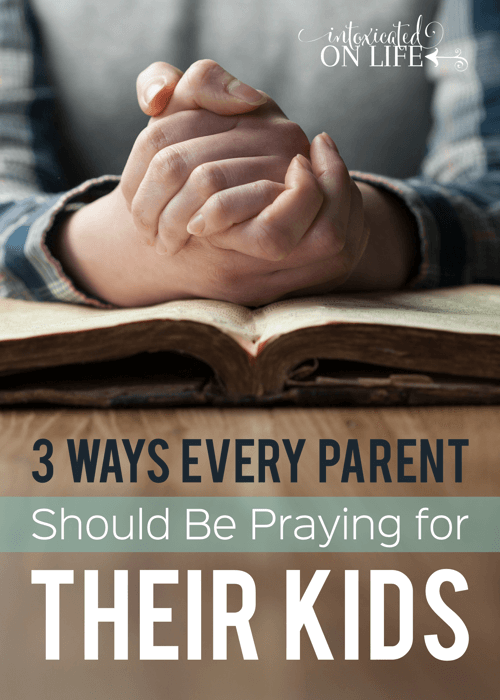
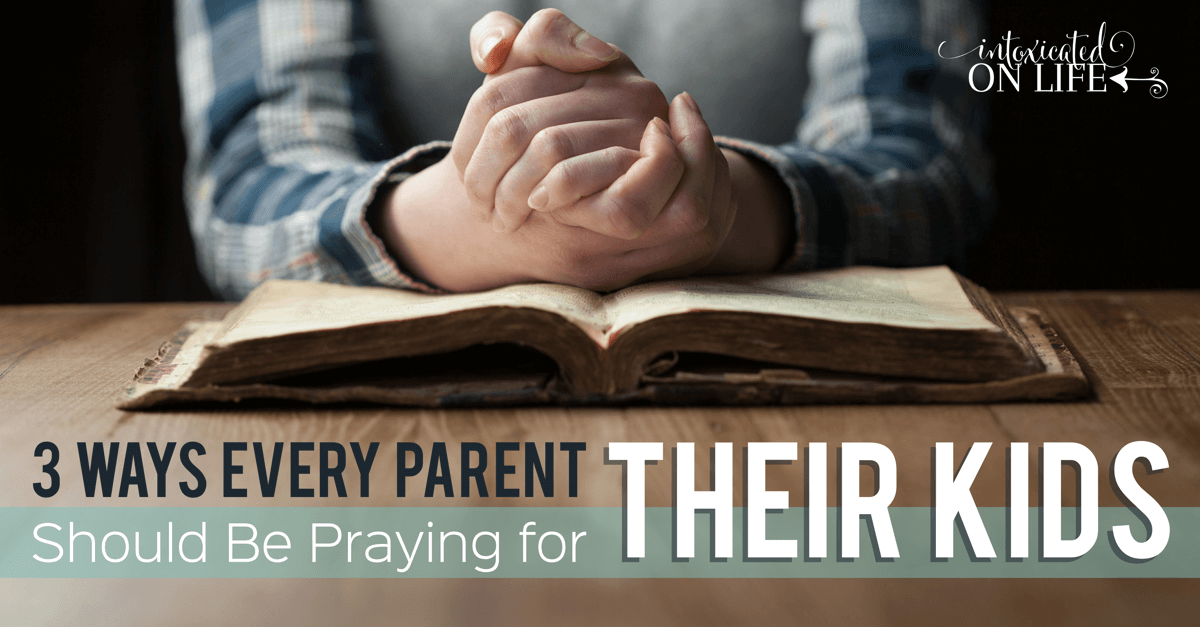
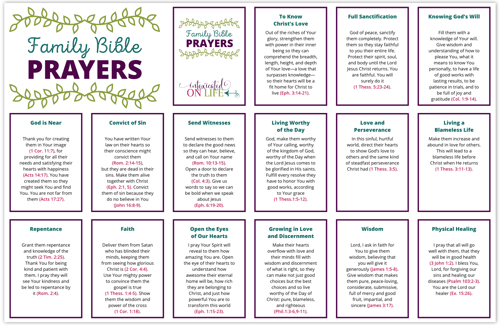
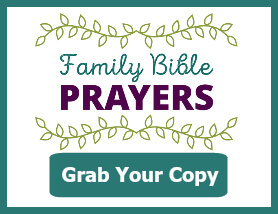
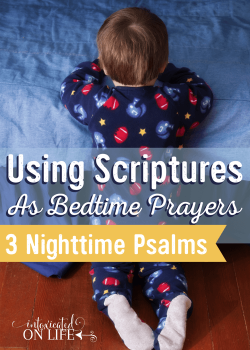

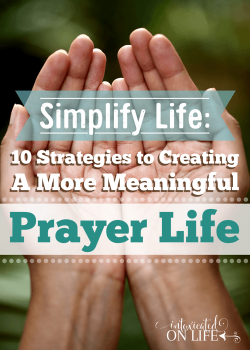






I do believe it is a duty of mine to pray for my boys. My prayer stance is typically walking. I find that I focus more when I am moving. Thanks for sharing at Let’s Get Real Friday
I do praying Scripture for my family! Knowing that I am saying God’s Words back to Him gives me confidence that I am praying in His will.
Amen to that!